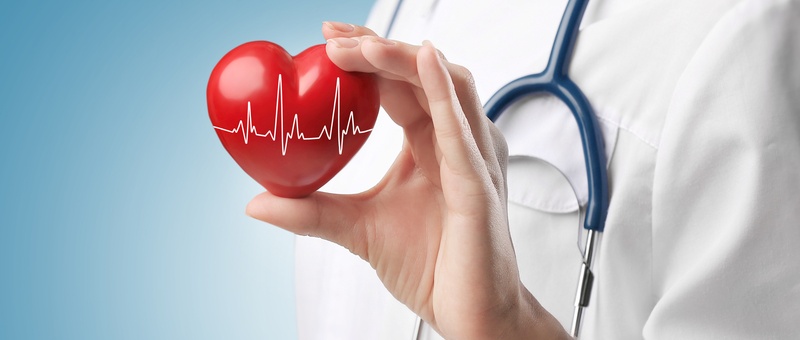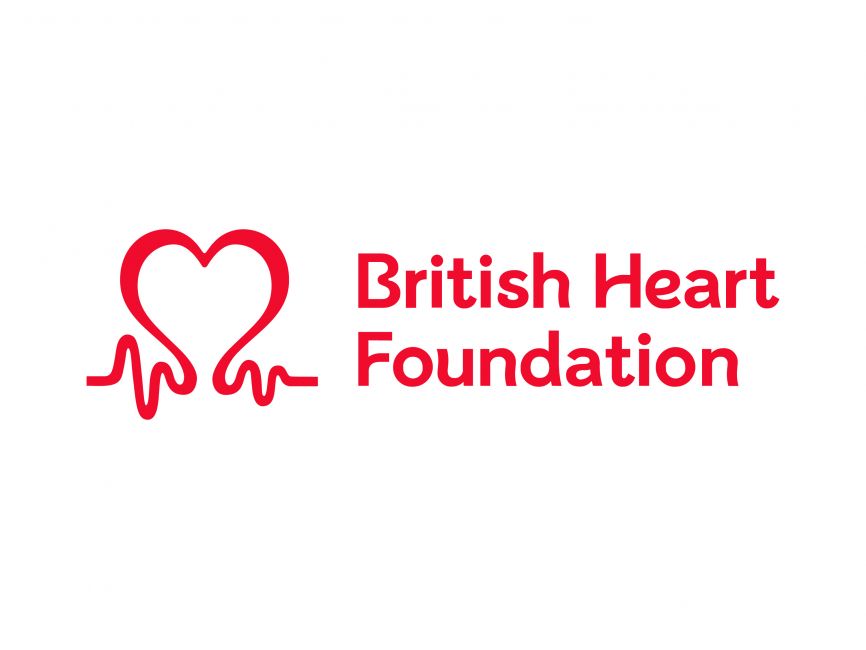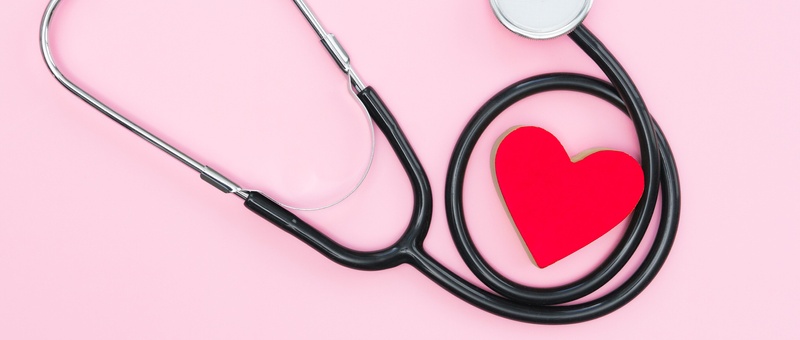
Am I having a heart attack?
Peer reviewed by Dr Colin Tidy, MRCGPLast updated by Lawrence HigginsLast updated 9 Oct 2025
Meets Patient’s editorial guidelines
- DownloadDownload
- Share
- Language
- Discussion
- Audio Version
Every year there are around 100,000 hospital admissions in the UK because of a heart attack - that’s one every five minutes. If you are having a heart attack the key to immediate survival and long-term health is to get treatment as soon as possible.
Here we look at how to tell if you are having a heart attack, what you should do, and what will happen to you if you are.
Sponsored
British Heart Foundation
This feature is sponsored by British Heart Foundation - the biggest funder of research into heart and circulatory diseases in Europe.
The content follows the Patient editorial policy.

In this article:
Video picks for Heart attack
What to do if you think you’re having a heart attack
If you have sudden chest pain or think you are having a heart attack:
Call 999 for an ambulance straightaway.
Take one 300mg aspirin tablet if you have it and you're not allergic.
Sit down and stay calm, and wait for the ambulance. Do not drive yourself to hospital.
Act straightaway - the longer you wait the more likely you are to suffer serious heart damage or die.
Continue reading below
What is a heart attack
A heart attack is when the blood suddenly stops flowing to a part of your heart muscle. You must get treatment as soon as possible to limit the amount of damage caused to your heart.
What are the symptoms of a heart attack?
The symptoms of a heart attack symptoms can be different from person to person.
Feeling one or more of the four Ps are some of the main signs that you may be having heart attack. The four Ps are:
Pain severe and feels like a heavy pressure on your chest - doesn't go away and may spread to your jaw, neck, back, tummy, or arms.
Pale skin.
Pulse - rapid and weak.
Perspiration – sweating heavily.
Other symptoms include:
Feeling sick.
Feeling faint.
Being short of breath.
Severe chest pain - lasting for more than 15 minutes and may continue for several hours - is the most common heart attack symptom. You may only have a mild pain which feels like indigestion or heartburn – or you may have no pain at all.
The pain you feel from angina is similar to a heart attack but will usually ease around 10 minutes after resting.
What are the symptoms of a heart attack in women?
Back to contentsAccording to the World Health Organization, coronary heart disease (CHD) - the main cause of heart attacks – is the single biggest cause of death in women worldwide. In the UK it kills more than twice as many women as breast cancer - yet it’s often thought of as a man’s disease.
The British Heart Foundation (BHF) estimates there are more than 800,000 women in the UK living with CHD – around one half of them have survived a heart attack.
Men and women have the same heart attack symptoms – but to greater or lesser extents. This table shows the percentage of men and women who feel the key symptoms of a heart attack.
Comparison of heart attack symptoms felt by men and women
Symptom | % reported by men | % reported by women |
Chest pain | 93 | 93 |
Pain in left arm | 48 | 49 |
Pain in jaw or back | 19 | 33 |
Feeling sick and chest pain | 19 | 33 |
Rarer symptoms, such as heartburn, back pain, or stabbing or burning pain | 41 | 23 |
Source: BHF
Whilst men and women generally have the same heart attack symptoms, BHF research shows that women are 50% more likely to be mis-diagnosed than men. An initial misdiagnosis means a 70% higher risk of death after 30 days compared to receiving the correct diagnosis straightaway. Women are also more likely to delay receiving treatment than men. Once they do receive treatment women are less likely to be prescribed medicines to help prevent a second heart attack.
The changes following menopause that may happen to your body - such as weight gain, lower oestrogen levels, or higher cholesterol - also increase your chances of developing CHD. The lack of awareness about this is another possible reason that heart attack survival rates are lower for women than for men. If more women who are living with menopause knew their chances of heart attack were increased they would be more likely to spot the symptoms.
If you are a women, it is vital that you know the symptoms of a heart attack - these have now been shown to be the same as those experienced by men. Seek treatment urgently by calling for an ambulance if you are having any of them.
Continue reading below
Causes of heart attacks
Back to contentsThe most common cause of heart attacks is when a blood clot (thrombosis) stops your blood getting to your heart. Blood clots are caused by a build-up of fatty material called atheroma (or plaque) which builds up in your artery walls – these carry the blood from your heart to the rest of the body.
Lifestyle, health conditions and family history all affect your chances of you having a heart attack.
Lifestyle factors that will increase your risk of heart attack include:
Smoking.
Being overweight
Being inactive.
Unhealthy diet.
Having diabetes type 2, and high cholesterol and blood pressure levels will also increase your risk.
Factors that are outside your control which can raise the chance of you having a heart attack include:
Diabetes type 1.
Having a family history of heart disease or stroke that happened to your father or brother aged below 55, or in your mother or sister aged below 65.
Being from certain ethnic groups - for example, South Asian.
Treatment and recovery from heart attacks
Back to contentsEmergency treatment
As soon as possible after a heart attack is suspected you will be given treatment. This may include aspirin - if you have not already had one - GTN spray (glyceryl trinitrate), oxygen, and morphine. The medical care team will try and restore the blood flow as quickly as possible by clearing your blocked artery.
The main methods used to get your blood flowing again are:
Thrombolysis – an injection of clot-busting medicine to clear the blocked artery. You may be given this in the ambulance on the way to hospital.
Coronary angioplasty – small wire mesh tubes (stents) are put into the blocked artery to keep it open and let your blood flow to your heart.
Coronary bypass surgery – uses a healthy blood vessel from your chest or leg area to create a new route for blood to flow around the blocked artery.
You may be given other medicines to treat your heart attack, these include.
Beta-blockers - to protect your heart muscle, prevent abnormal heart rhythms, and help to prevent another heart attack.
Injections to help prevent further blood clots from forming – such as heparin.
Insulin - to control your blood sugar levels if they are raised.
Oxygen - to reduce the chance of damage to your heart muscle.
Pain relief - such as morphine.
Recovering from a heart attack in the hospital
How long you stay in hospital will depend on the treatment you have had, the severity of your heart attack, and general fitness levels. If you have had stents or coronary angioplasty, you’ll probably go home after two or three days. If you’ve had by-pass surgery you may stay in for one week or more.
Your doctor will not send you home until you are well enough and it is safe for you.
Treatment after you have had a heart attack
Your treatment after a heart attack will help reduce your chance of having another one – and stop your heart disease from getting worse.
It's likely you will need to take certain medicines for the rest of your life. The actual medicines prescribed for you will depend on factors such as the type of heart attack you had and other health conditions you may have.
Common medicines you may prescribed include:
Antiplatelets – such as clopidogrel or ticagrelor to help prevent blood clots.
Angiotensin-converting enzyme (ACE) inhibitors to help protect the heart.
Beta-blockers to help protect the heart.
Statins to lower the cholesterol level.
Continue reading below
How to minimise the risk of a second heart attack
Back to contentsIf you've already had a heart attack, you're at an increased risk of having another. As well as medicines there are several lifestyle changes you can make to reduce the risk though, these include:
Keeping your weight at healthy levels.
Exercising regularly.
Looking after your mental wellbeing.
Taking your medicines when you should.
Drinking within safer alcohol limits.
Managing your blood sugars.
Managing high blood pressure.
Speak to your doctor about any worries you may have and about the medicines and treatment you are receiving. You can also speak to a BHF cardiac nurse by phone, callback, email, or online chat on the BHF Heart Helpline.
Patient picks for Heart attack

Heart health and blood vessels
Can stress cause heart attacks?
While stress alone doesn't directly cause heart attacks, long-term, unmanaged stress can raise your chance of having one. In this article, we explore effective ways to lower your likelihood of heart attack and offer practical tips for managing stress.
by Victoria Raw

Heart health and blood vessels
How healthy is your heart?
Whilst your heart is as old as you are - it does have its own age, which is a sign of how healthy you are. Here we show a calculator which compares your real age to your heart age and we show how you can can turn back the clock on heart attack risks by improving your lifestyle.
by Lawrence Higgins
Continue reading below
Article history
The information on this page is peer reviewed by qualified clinicians.
Next review due: 9 Oct 2028
9 Oct 2025 | Latest version
7 Oct 2024 | Originally published
Authored by:
Lawrence Higgins

Ask, share, connect.
Browse discussions, ask questions, and share experiences across hundreds of health topics.

Feeling unwell?
Assess your symptoms online for free
Sign up to the Patient newsletter
Your weekly dose of clear, trustworthy health advice - written to help you feel informed, confident and in control.
By subscribing you accept our Privacy Policy. You can unsubscribe at any time. We never sell your data.